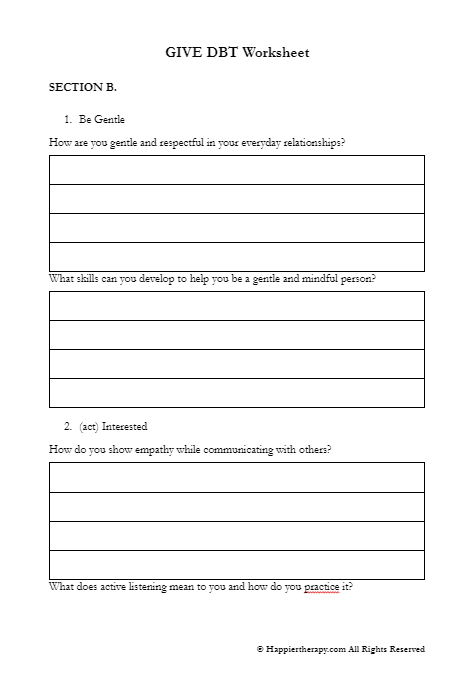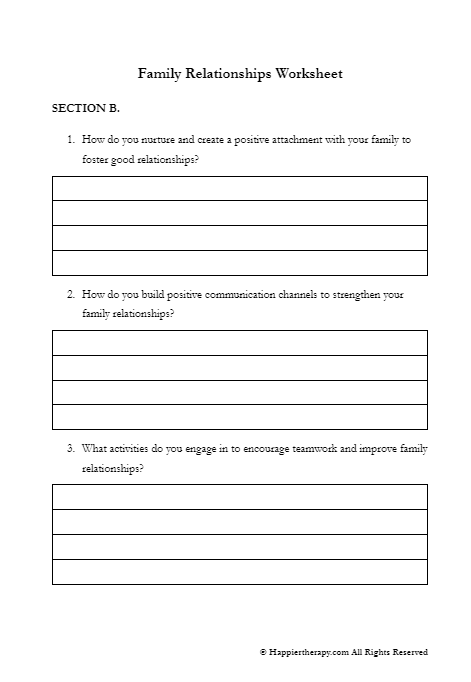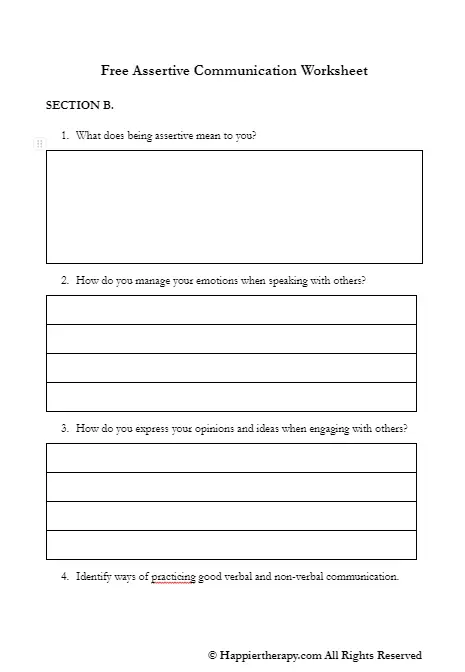Reflections: Communication skills for confrontation worksheet
Premium Content
Access this worksheet and 2,500 mental health worksheets. Cancel anytime
What is the theory behind this Reflections: Communication skills for confrontation worksheet?
The theory behind a “Reflections: Communication skills for confrontation” worksheet is likely based on the idea that effective communication is a key component of successful conflict resolution. This type of worksheet is designed to help individuals improve their communication skills when dealing with confrontational situations.
Enhance Your Therapy Sessions with research-backed worksheets
Customizable and fillable worksheets
Rights to alter the worksheets
Over 2000 worksheets
Support HappierTherapy
One theory that relates to this type of worksheet is the theory of Transactional Analysis (TA), which states that people engage in communication through different ego states such as parent, adult or child. This theory can be useful in understanding how an individual’s communication style may be influenced by their past experiences and how it can impact the way they interact in a confrontation.
Another theory that relates to this is Nonviolent Communication (NVC), which is based on the idea that all human beings have the capacity for compassion and that all human needs are interconnected. NVC focuses on the use of empathic communication, which can help individuals understand the needs and feelings behind the words of the person they are communicating with, and it can also reduce the likelihood of conflict and defensiveness.
In summary, the theory behind this type of worksheet is likely based on the idea that effective communication is a key component of successful conflict resolution. It’s based on theories such as Transactional Analysis and Nonviolent Communication which can aid in understanding how an individual’s communication style may be influenced by their past experiences, how it can impact the way they interact in a confrontation and how empathic communication can reduce the likelihood of conflict and defensiveness.
How will the worksheet help?
The Reflections: Communication skills for confrontation worksheet can help individuals in several ways:
- Improving communication skills: The worksheet may provide prompts or exercises that help individuals to reflect on their communication style and identify areas for improvement.
- Understanding the impact of past experiences: By reflecting on past experiences, individuals may gain insight into how their past experiences may be influencing their communication style and learn how to separate past experiences from the current situation.
- Identifying triggers: The worksheet may also help individuals to identify situations or triggers that may cause them to react emotionally and communicate ineffectively.
- Learning about different communication styles: The worksheet may also provide information about different communication styles and how to effectively communicate with individuals who have different communication styles.
- Practice empathy: The worksheet may provide exercises that help individuals to practice empathic communication which can lead to a better understanding of the needs and feelings of the person they are communicating with, reducing the likelihood of conflict and defensiveness.
- Reflecting on progress: The worksheet may also be used to reflect on the client’s progress over time, which can help them to stay on track and continue to work towards their goals.
- Aids in therapy sessions: The worksheet can also be used as an aid during therapy sessions, helping the therapist understand the client’s communication style and provide more targeted support.
In summary, the Reflections: Communication skills for confrontation worksheet can help individuals to improve their communication skills, understand the impact of past experiences, identify triggers, learn about different communication styles, practice empathy, reflect on their progress, and aid in therapy sessions.
How to use the worksheet?
In this worksheet, the client will be asked to answer a few questions that reflect the Reflections: Communication skills for confrontation worksheet. This worksheet is simple to use and asks a few questions.
Was this helpful?
References
1.-
Reflections: Communication skill. (n.d.). Therapist Aid. https://www.therapistaid.com/therapy-worksheet/reflections-communication
2.-
Heitler, S. (2020, August 18). 4 conflict resolution worksheets for your practice. PositivePsychology.com. https://positivepsychology.com/conflict-resolution-worksheets/
 By
By


